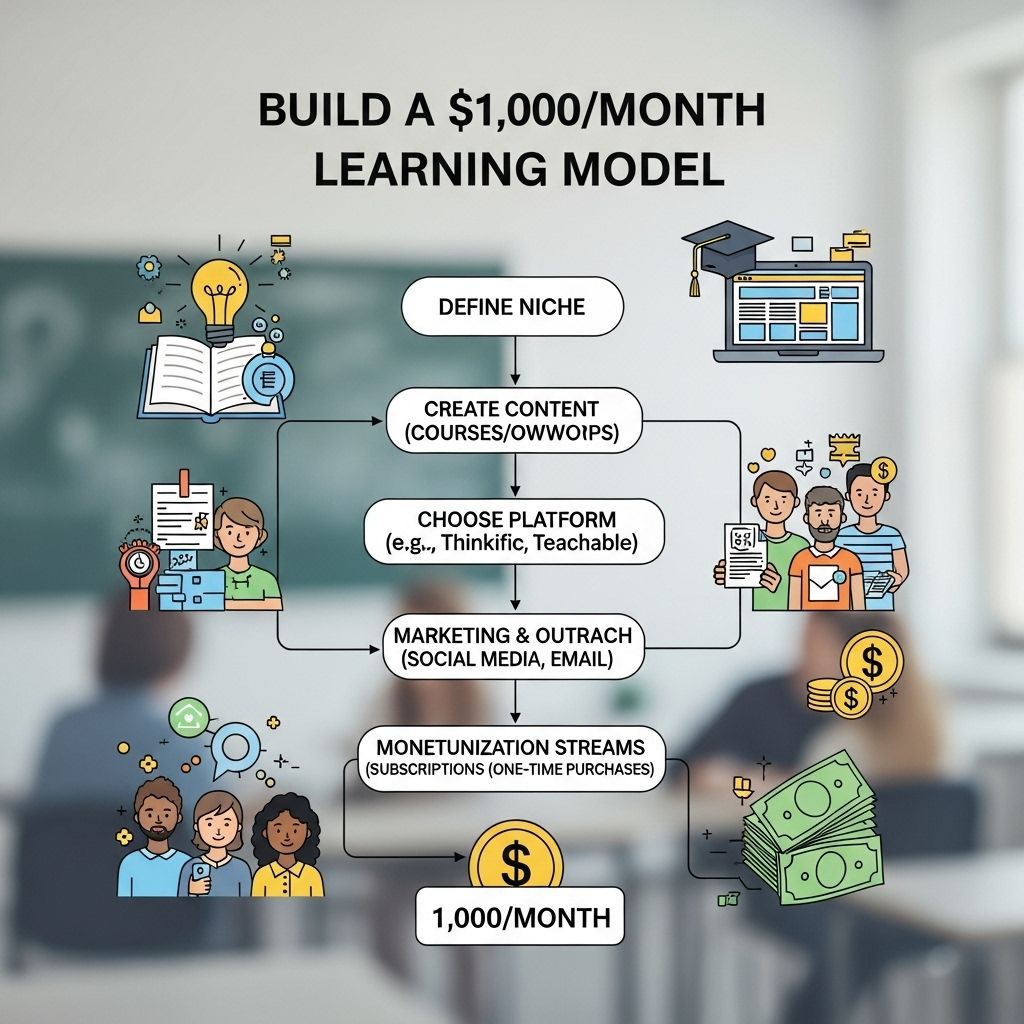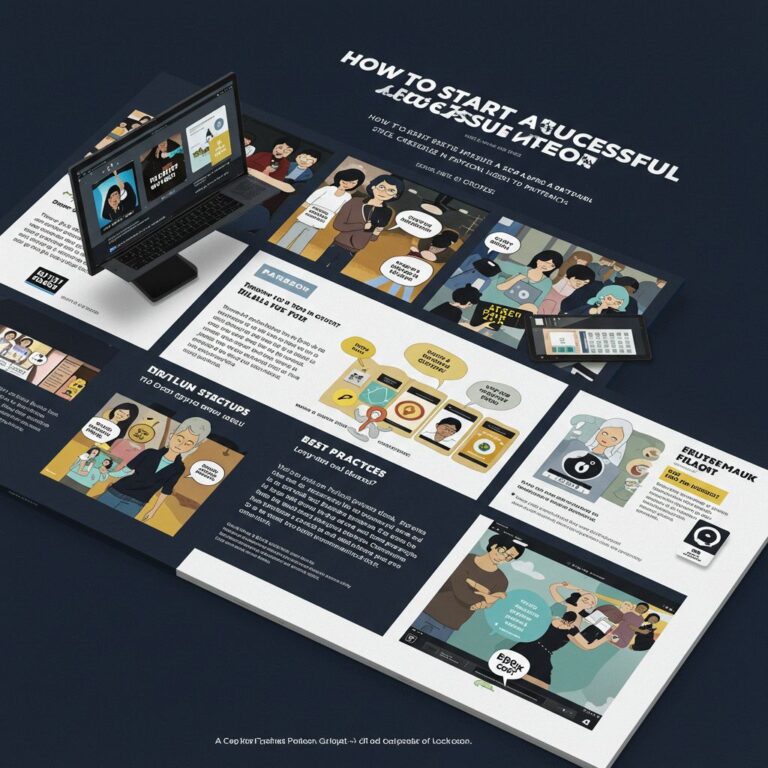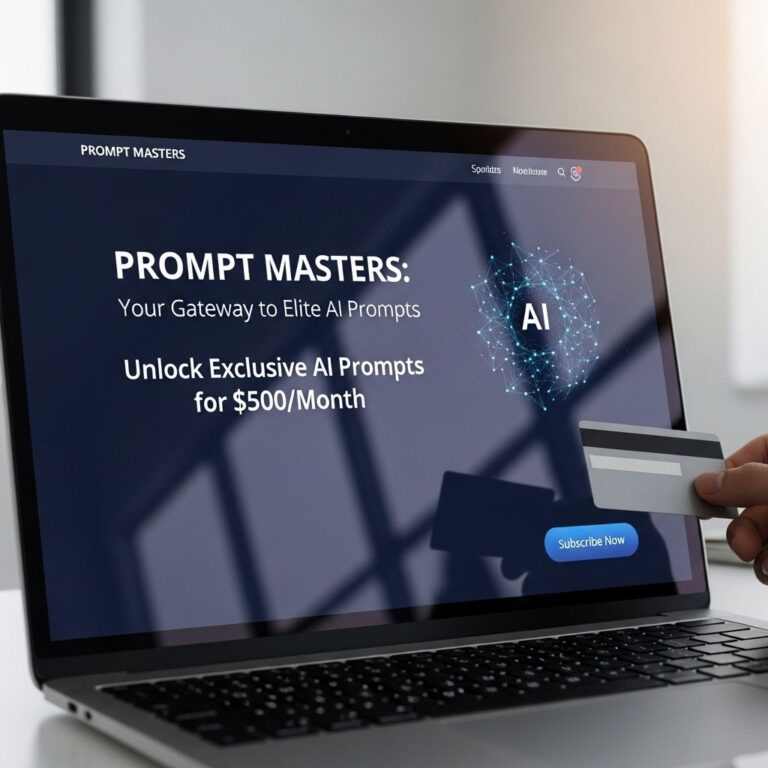In today’s fast-paced digital economy, the ability to learn and adapt quickly can significantly impact your career trajectory. Developing a sustainable learning model that generates income while enhancing your skills is a powerful way to ensure long-term success. This article will delve into practical strategies to create a learning model that can potentially earn you $1,000 a month.
Table of Contents
Understanding the Learning Model
A learning model is essentially a systematic approach to acquiring knowledge and skills that can be monetized. By leveraging online resources, interacting with communities, and applying your knowledge practically, you can create a flow of income based on your learning endeavors. Here are the key components of a successful learning model:
- Curriculum Design: Outline your learning goals clearly.
- Resource Allocation: Identify and gather necessary resources.
- Practical Application: Use your knowledge in real-world situations.
- Community Engagement: Collaborate and network with like-minded individuals.
Step 1: Identify Your Niche
Choosing a niche is crucial for your learning model. Focus on areas that not only interest you but also have the potential for monetization. Consider the following:
Popular Learning Niches
- Programming and Software Development
- Digital Marketing
- Data Analysis and Data Science
- Graphic Design
- Content Creation and Blogging
Once you identify your niche, research the demand in that sector. Use tools like Google Trends and SEMrush to gauge interest and competition within your chosen field.
Step 2: Create a Curriculum
Designing a structured curriculum is essential. This plan will guide your learning journey. Here are steps to consider:
- Conduct a Skills Gap Analysis: Determine what skills are currently in demand in your niche.
- Outline Learning Objectives: Clearly articulate what you aim to learn and achieve.
- Select Learning Resources: Choose from online courses, books, podcasts, and tutorials.
For example, if you chose digital marketing, your curriculum might include:
| Week | Topic | Resource |
|---|---|---|
| 1 | SEO Basics | Online Course XYZ |
| 2 | Social Media Strategies | Book: ABC Marketing |
| 3 | Email Marketing Techniques | Podcast: Marketing Madness |
| 4 | Analytics Tools | Tutorial: Google Analytics |
Step 3: Engage with the Community
Being part of a community can significantly enhance your learning. Here are ways to engage:
- Join Online Forums: Platforms like Reddit and Quora can provide insights and answers.
- Attend Webinars and Events: Networking with industry leaders can open new doors.
- Participate in Workshops: Hands-on experiences are invaluable.
Building Your Network
Networking is crucial for gaining insights and opportunities. Here are tips to cultivate your network:
- Leverage LinkedIn: Connect with professionals in your niche.
- Participate in Local Meetups: Engage with local experts and peers.
- Contribute to Discussions: Share your knowledge in online communities.
Step 4: Apply Your Knowledge
Real-world application of your skills is where the magic happens. Here’s how to do it effectively:
- Freelancing: Websites like Upwork and Fiverr allow you to offer services based on your skills.
- Creating Content: Start a blog or a YouTube channel to share what you learn.
- Develop Projects: Build projects to showcase your skills in your portfolio.
Freelancing as a Revenue Stream
Freelancing can be a profitable venture. To maximize earnings, consider:
- Setting Competitive Rates: Research the market rates for your services.
- Building a Portfolio: Showcase your best work to attract clients.
- Gathering Testimonials: Collect reviews from satisfied clients to enhance credibility.
Step 5: Monetize Your Learning
Once you have acquired skills and applied them, it’s time to monetize your learning. Here are actionable strategies:
Multiple Income Streams
Consider diversifying your revenue sources:
- Online Courses: Create and sell your own courses on platforms like Udemy or Teachable.
- E-books: Write and publish e-books on your experiences and knowledge.
- Consulting: Offer your expertise to businesses needing guidance in your niche.
Tracking Your Progress
To ensure that you are on track to reach your $1,000/month goal, it’s important to monitor your progress.
Key Performance Indicators (KPIs)
Establishing KPIs can help you stay focused:
- Number of projects completed each month
- Total income generated from various sources
- Number of new skills learned
- Engagement and growth of your online community
Conclusion
Building a $1,000/month learning model is not just a goal; it’s a journey that requires dedication, continuous learning, and strategic application of skills. By following the steps outlined in this article, you can create a sustainable learning model that not only enhances your knowledge but also enriches your financial stability. With the right approach, learning can be both fulfilling and financially rewarding.
FAQ
What is a $1,000/month learning model?
A $1,000/month learning model is a structured approach to generate income by leveraging online learning platforms, affiliate marketing, or creating educational content.
What skills do I need to build a $1,000/month learning model?
You should focus on skills such as content creation, marketing, data analysis, and understanding of online learning platforms.
How can I choose a profitable niche for my learning model?
Research trending topics, assess your expertise, and evaluate market demand to find a profitable niche for your learning model.
What platforms can I use to monetize my learning model?
You can use platforms like Teachable, Udemy, Skillshare, or your own website to monetize your learning model.
How can I market my learning model effectively?
Utilize social media, email marketing, and SEO strategies to promote your learning model and attract students.
What are common mistakes to avoid when building a learning model?
Avoid neglecting market research, underestimating the importance of marketing, and failing to engage with your audience.









